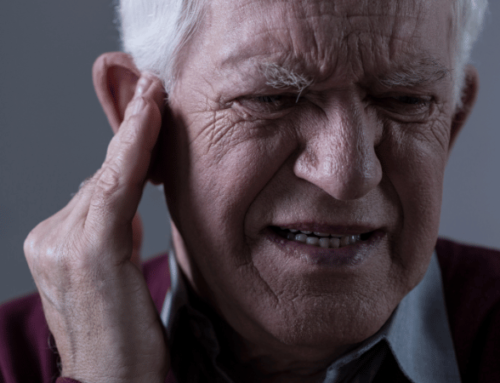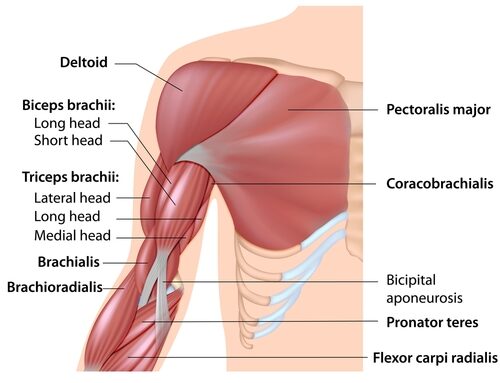What are the reasons why you have shoulder pain? Shoulder pain is a common ache in the U.S. By some estimates, as many as 67% of people experience shoulder discomfort at some point over the course of their lives. The most mobile joint in your body, the shoulder is made up of bones held in place by muscles, tendons, and ligaments. They’re all designed to work together to allow the shoulder to move freely in many different directions. This allows you to do everything from raising your arms over your head to throwing a baseball and scratching your back.
“Unfortunately, this mobility comes at the expense of stability, and that leaves the shoulder vulnerable to injury, says Clifford Stark, DO, medical director of Sports Medicine. Factor in the wear and tear of everyday life and it’s easy to see why you’re shouldering so much pain. You’ll need to consult your doctor for a formal diagnosis of your shoulder pain. That visit will include a physical exam, and possibly an X-ray, MRI, or ultrasound. You may even be referred for physical therapy right off the bat, Dr. Stark says. Read on to learn about some of the many reasons why your shoulder might hurt and how to find relief.
consult your doctor for a formal diagnosis of your shoulder pain. That visit will include a physical exam, and possibly an X-ray, MRI, or ultrasound. You may even be referred for physical therapy right off the bat, Dr. Stark says. Read on to learn about some of the many reasons why your shoulder might hurt and how to find relief.
Of all the reasons you have shoulder pain, injury to your rotator cuff is the most common—in a recent study, two-thirds of people with shoulder pain had a rotator cuff problem. The rotator cuff is group of muscles and tendons that attach to the bones of the shoulder joint. It keeps the ball of your upper arm bone centered in your shoulder socket and also helps you raise and rotate your arm.
Doing the same motion over and over again can lead to inflammation of the rotator cuff tendons, also called tendonitis, which can cause shoulder pain. “The rotator cuff is like a tire—with aging or frequent use it gets thinner and thinner and eventually wears down,” says Robert Gotlin, DO, a sports and spine physician. With tendonitis, shoulder pain and weakness are often mild at first and only noticeable when you move the joint; after a while, they can become more severe and occur all the time.
Rotator cuff tendonitis often gets better with a change in activities to avoid provoking pain so the tendon can heal. “There’s a fine line between doing too much and doing too little,” says Dr. Stark. “You don’t want to lift weights, but it’s okay to do things that don’t aggravate it”. Ice or heat to the shoulder and non-steroidal anti-inflammatory drugs (NSAIDs) like ibuprofen and naproxen can reduce pain as well. Your doctor may also refer you to a physical therapist for manual therapy and strengthening exercises to keep your muscles moving and to challenge weaker muscles.
It’s also possible to partially or completely tear a shoulder tendon, either from repetitive motion or from direct trauma, like a fall.
The pain of an acute tear, one that happens suddenly, can be excruciating. But shoulder pain, weakness, and stiffness of a chronic tear worsen slowly over time. You often don’t notice when they begin.
Rest, ice or heat, and NSAIDs may help heal rotator cuff tears. But your doctor will likely suggest physical therapy to strengthen your shoulder muscles and improve the mechanics of the shoulder joint, as well as provide exercises to do at home. “Your tires will last you a lot longer if your alignment and shocks are good, and the exact same thing is true of the shoulder,” says Dr. Stark. Cortisone (steroid) injections, which give temporary pain relief so you can strengthen your muscles, or surgery may also be required.
It may just be trigger points in the muscle rather than a tear. Here’s an article to read what happens when there is trigger points in the deltoid muscle.
Frozen shoulder
This injury is exactly what it sounds like, says Dr. Stark. “People with frozen shoulder come in with severe stiffness and inability to move their shoulder the way they normally would, with varying levels of shoulder pain”. Medically known as adhesive capsulitis, frozen shoulder results when the connective tissue that lines your shoulder joint becomes thickened and inflamed. Precisely why this happens isn’t known, nor is the reason why middle-age women are especially prone to frozen shoulder. There are other factors that can put you more at risk of the condition. For instance, up to 20% of people with diabetes develop frozen shoulder, and people with thyroid problems or Parkinson’s disease may also be vulnerable to this type of shoulder pain.
You don’t just wake up with frozen shoulder though. Doctors break the progression into three stages: freezing, frozen, and thawing. “Over time, you’ll notice a decrease in your range of motion and then all of a sudden it escalates,” says Dr. Gotlin. Most people get better without treatment–eventually. It usually takes about 18 months for a frozen shoulder to completely thaw. “You can cut it down a few months with physical therapy, but it will still last a while,” says Dr. Gotlin. Since some people wind up with a frozen shoulder on the opposite side as well, doctors often treat the good side too, just to keep it moving, but this is one of the common reasons you can have shoulder pain.
Shoulder bursitis
Got deep, achy soreness that feels hot and swollen? Chances are you have shoulder bursitis. This is an inflammation of the bursa, a fluid-filled sac that provides a smooth surface for muscles and bones to glide over. “If you have two muscles aligned side by side and there isn’t something between them to reduce friction, they wouldn’t move,” explains Dr. Gotlin. Normally these sacs, which are found in joints throughout the body, are filled with a small amount of fluid. Sometimes, though, when you overdo it (say, by throwing a ball or lifting something over your head repeatedly), the body responds by bringing more fluid to the bursa—and the swelling that influx produces is what’s known as bursitis. “A bursa is like a balloon that’s practically flat, and bursitis is the balloon being filled up with lots of water,” says Dr. Gotlin.
The pain from bursitis is typically on the outside of your shoulder. Typically it’s made worse when using your arm above your head. Treatment is usually rest, ice or heat, and pain relievers. Your doctor may also recommend physical therapy to stretch or strengthen the shoulder muscles and increase range of motion, and/or cortisone injections to reduce inflammation.
Labral tears
It’s not unusual to hear about pro athletes suffering tears to the labrum. The labrum is a thin rim of soft cartilage that surrounds the edge of the shoulder socket and helps keep the shoulder stable yet mobile. But these tears are a common injury in regular folks too. Indeed, probably half of middle-age men and women have some sort of labral tear from years of use, says Dr. Gotlin. Often you won’t even be aware you have one, since some tears are completely asymptomatic and cause no problems. But others can be a reason you have shoulder pain, specifically when moving your arm in an overhead motion or across your chest—say, to scratch your left shoulder with your right arm.
There are several types of labral tears and treatment depends on the severity of the injury. For instance, if the labrum is still attached to the socket and just frayed, rest, NSAIDs, and physical therapy usually help relieve pain; however, because these tears typically don’t completely heal, the problem can flare up again. If the labrum is fully detached, surgery is usually required.
Shoulder impingement
You don’t even have to know what impingement means to know you don’t want it—the word itself sounds like trouble. Shoulder impingement often occurs after repeated overhead activity, like swimming. Shoulder tendons and bursa get impinged, or pinched, between the bones of the shoulder, which makes it painful to move your arm. Various positions, including overhead motion, reaching back, or lying on the affected side, may all worsen the symptoms. [Is it a pinched nerve?]
Shoulder impingement can weaken the rotator cuff, so physical therapy is key to alleviating this pain and preventing further damage. “Since one of the main jobs of the rotator cuff is to stabilize the joint, any weakness to it will lead to further impingement, creating an ever-vicious cycle,” says Dr. Stark. Properly strengthening and balancing all the muscles and tissues that affect the shoulder can relieve the impingement.
Osteoarthritis
Sometimes called degenerative joint disease, osteoarthritis (OA) stems from ordinary wear and tear on the shoulder joint. Thfe condition destroys the firm, rubbery cartilage that acts as a cushion between the bones and helps them to glide smoothly against each other. As the cartilage breaks down and the bones of the joint rub against each other, shoulder pain and swelling can limit your range of motion. For instance, it may become difficult to lift your arm to brush your hair or reach up to a shelf. Sometimes you’ll hear a grinding, clicking, or snapping sound as you move your shoulder.
Most people get relief from rest or a change in activities to avoid provoking pain. Heat or ice, NSAIDs, and physical therapy exercises to both stretch and strengthen the muscles help support the joint and improve its range of motion. Your doctor may also recommend steroid injections.
Shoulder instability
By design, shoulders are unstable—it’s what allows them to move in so many ways. But the term “instability” is also a diagnosis that’s given when the shoulder hurts because the ball of the joint is too loose and is able to slide around too much in the socket. Chronic strain and worsened instability can occur when an already loose shoulder is overused. Especially if the use is repeatedly challenging the ligaments that help hold the shoulder in the socket, says Dr. Stark. “We see this a lot in the throwing athlete, swimmer, or volleyball playe. Someone who uses their shoulder a lot through its full range of motion”. Instability is a likely cause of shoulder pain in younger people, especially if it comes on with certain sports, because wear-and-tear conditions like rotator cuff tears and arthritis tend to occur with age.
Rest, heat or ice, and NSAIDs can help control pain and swelling. But the key fix for instability is physical therapy to strengthen the muscles that assist in keeping the ball of the joint in the socket. This will improve stability of the shoulder and allow your joint to move more smoothly.
Dislocated shoulder
Shoulder instability exists on a continuum. On the extreme end is complete dislocation, or when the ball of the joint becomes so loose it actually comes out of the socket. It’s also possible to partially dislocate your shoulder. This is called subluxation. It occurs when the shoulder almost slips completely out of the socket, but then pops back in. With subluxation, people often notice that their shoulder feels loose and slips in certain position. Most often when their arm is raised over their head. Both subluxation and dislocation can also result from trauma, such as a fall or blow that occurs with enough force to overpower the strength of the muscles and ligaments of the shoulder.
If your shoulder dislocates, it’s important to seek medical help. As tempting as it may be to let someone place the bone back in the socket, an X-ray to rule out a fracture is a must. “Even if you know what you’re doing, you can sever a nerve with a piece of sharp bone,” says Dr. Stark.
Your doctor will return the ball of the joint to the socket, then control the residual pain and swelling with rest, NSAIDs, and possibly cortisone injections. You may also have your shoulder immobilized in a sling for a few weeks. Physical therapy is also usually required to regain full use of your arm. In some cases, surgery to tighten loose ligaments is necessary.
Fractured collarbone
Breaks in the collarbone (aka clavicle), one of the main bones in the shoulder, are fairly common—they account for about 5% of all adult fractures, according to the American Academy of Orthopaedic Surgeons. This type of break usually occurs with trauma, like when you fall onto your shoulder or your outstretched arm. If your shoulder hurts due to trauma—you fell on it or you hear a pop while working out—see a health care provider right away, says Dr. Stark. Some injuries won’t heal correctly if they’re not tended to within a certain amount of time.
Fractured collarbones can snap just slightly or into many pieces. In either case, the broken pieces of bone may line up straight or be far out of place. A broken collarbone is very painful and makes it difficult to move or lift your arm.
Treatment will depend on the break. “Some collarbone fractures can heal with rest, but others require much more aggressive treatment,” says Dr. Stark. If the ends of the bone have not significantly shifted out of place, a simple sling may be all that’s needed to position your arm and shoulder during healing. If the broken ends of the bones have significantly displaced, you may need surgery. Whether you require surgery or not, it can take several months for your collarbone to heal. Physical therapy helps to maintain or restore movement and strength will be necessary.
Neck pain
To help pinpoint the cause of your shoulder pain, your doctor will take your medical history, and do a physical exam. They will ask a whole host of questions about your shoulder pain. When did you first start experiencing shoulder pain? What makes it better or worse? Have you ever injured your shoulder? And is the shoulder pain associated with any neck pain? People often have shoulder pain that’s actually stemming from the upper back or neck area; in fact, this overlap is so common it’s sometimes referred to as “shneck” pain.
Heart attack
Left arm pain or shoulder pain can be a symptom of an impending heart attack—the shoulder can begin to hurt as a result of the pain radiating from the chest. If you think you’re having a heart attack (other symptoms include tightness or pressure in the chest area, sweating, and nausea), seek immediate medical attention.
How to prevent shoulder pain
The best way to manage shoulder pain is to avoid it in the first place. “As computer and cell phone use continues to climb, posture problems follow, and they dramatically increase the risk of shoulder injuries,” says Dr. Stark. To help keep tech-related shoulder pain at bay, raise your mobile device to eye level rather than tilting your chin down to scroll and text, and be sure to place your computer monitor at eye level.
Another reason why you have shoulder pain: Many people only exercise the muscles they see in the mirror, and this can create an imbalance that pulls the shoulder and other structures forward, contributing to injury. It’s crucial to balance this out by strengthening the muscles of the back and maintaining flexibility all around, says Dr. Stark.
 consult your doctor for a formal diagnosis of your shoulder pain. That visit will include a physical exam, and possibly an X-ray, MRI, or ultrasound. You may even be referred for physical therapy right off the bat, Dr. Stark says. Read on to learn about some of the many reasons why your shoulder might hurt and how to find relief.
consult your doctor for a formal diagnosis of your shoulder pain. That visit will include a physical exam, and possibly an X-ray, MRI, or ultrasound. You may even be referred for physical therapy right off the bat, Dr. Stark says. Read on to learn about some of the many reasons why your shoulder might hurt and how to find relief.



